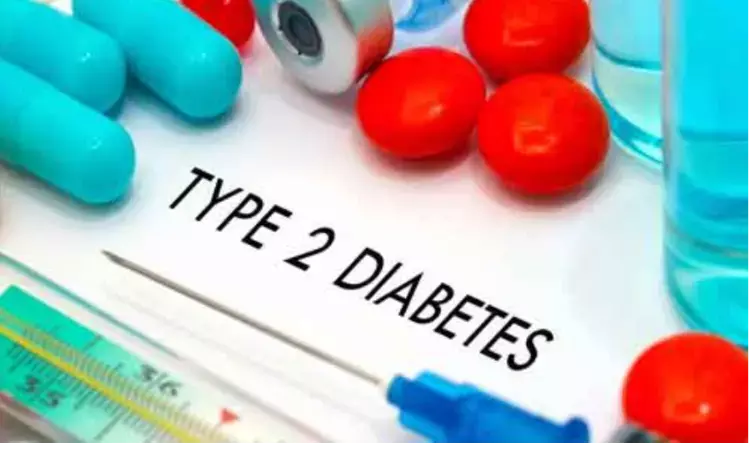- Home
- Medical news & Guidelines
- Anesthesiology
- Cardiology and CTVS
- Critical Care
- Dentistry
- Dermatology
- Diabetes and Endocrinology
- ENT
- Gastroenterology
- Medicine
- Nephrology
- Neurology
- Obstretics-Gynaecology
- Oncology
- Ophthalmology
- Orthopaedics
- Pediatrics-Neonatology
- Psychiatry
- Pulmonology
- Radiology
- Surgery
- Urology
- Laboratory Medicine
- Diet
- Nursing
- Paramedical
- Physiotherapy
- Health news
- Fact Check
- Bone Health Fact Check
- Brain Health Fact Check
- Cancer Related Fact Check
- Child Care Fact Check
- Dental and oral health fact check
- Diabetes and metabolic health fact check
- Diet and Nutrition Fact Check
- Eye and ENT Care Fact Check
- Fitness fact check
- Gut health fact check
- Heart health fact check
- Kidney health fact check
- Medical education fact check
- Men's health fact check
- Respiratory fact check
- Skin and hair care fact check
- Vaccine and Immunization fact check
- Women's health fact check
- AYUSH
- State News
- Andaman and Nicobar Islands
- Andhra Pradesh
- Arunachal Pradesh
- Assam
- Bihar
- Chandigarh
- Chattisgarh
- Dadra and Nagar Haveli
- Daman and Diu
- Delhi
- Goa
- Gujarat
- Haryana
- Himachal Pradesh
- Jammu & Kashmir
- Jharkhand
- Karnataka
- Kerala
- Ladakh
- Lakshadweep
- Madhya Pradesh
- Maharashtra
- Manipur
- Meghalaya
- Mizoram
- Nagaland
- Odisha
- Puducherry
- Punjab
- Rajasthan
- Sikkim
- Tamil Nadu
- Telangana
- Tripura
- Uttar Pradesh
- Uttrakhand
- West Bengal
- Medical Education
- Industry
ACEI/ARB, SGLT2 inhibitors combo better for diabetes control than ACEI/ARB alone: Study

China: The combo of SGLT2 inhibitors and ACEI/ARB is effective and well-tolerated than ACEI/ARB alone in patients with type 2 diabetes (T2D), reveals a recent study in the journal Nephrology Dialysis Transplantation. According to the study, the combo achieved additional effects including decrease in blood sugar and body weight, better control of blood pressure, alleviation of long-term renal function, and improvement of renal outcomes. However, the combination therapy showed an increased hypoglycemia risk.
Min Han, Huazhong University of Science and Technology, Wuhan, China, and colleagues aimed to to evaluate the efficiency and safety of combination therapy with SGLT2 inhibitors and RAS blockers, such as ACEI/ARB, in patients with T2D.
For the purpose, the researcher searched the online databases from their inception to May 2020. Study selection, risk of bias assessment and data extraction was independently performed by two authors.
A total of 7 studies consisting of 1757 patients were included.
Key findings of the study include:
- Compared with ACEI/ARB alone, combination therapy with SGLT2 inhibitors and ACEI/ARB produced reduction in SBP (WMD -3.84 mmHg), DBP (WMD -1.06 mmHg), 24 h ambulatory SBP (WMD -4.59 mmHg), 24 h ambulatory DBP (WMD -2.08 mmHg), UACR(WMD -29.70%), eGFR (WMD -3.46 mL/min per 1·73 m2), HbA1c (SMD -0.48), FPG (SMD -0.28), uric acid (SMD -0.35), and body weight (SMD -0.29).
- The risk of hypoglycemia with combination therapy was higher than the control group (RR 1.37).
- As for the risk of total AEs, genital infection and urinary tract infection, no significant difference was revealed.
"Compared with ACEI/ARB alone, the combination therapy with SGLT2 inhibitors and ACEI/ARB in T2DM was effective and well-tolerated, and could achieve additional effects, including better control of blood pressure, improvement of renal outcomes, alleviation of long-term renal function, and decrease of blood glucose and body weight," wrote the authors. "The combination therapy showed an increased risk of hypoglycemia."
The study titled, "Efficacy and safety of Combination Therapy with Sodium-glucose Transporter 2 Inhibitors and Renin-Angiotensin System Blockers in Patients with Type 2 Diabetes: A Systematic Review and Meta-Analysis," is published in the journal Nephrology Dialysis Transplantation.
DOI: https://academic.oup.com/ndt/advance-article-abstract/doi/10.1093/ndt/gfab048/6144902
Dr Kamal Kant Kohli-MBBS, DTCD- a chest specialist with more than 30 years of practice and a flair for writing clinical articles, Dr Kamal Kant Kohli joined Medical Dialogues as a Chief Editor of Medical News. Besides writing articles, as an editor, he proofreads and verifies all the medical content published on Medical Dialogues including those coming from journals, studies,medical conferences,guidelines etc. Email: drkohli@medicaldialogues.in. Contact no. 011-43720751


